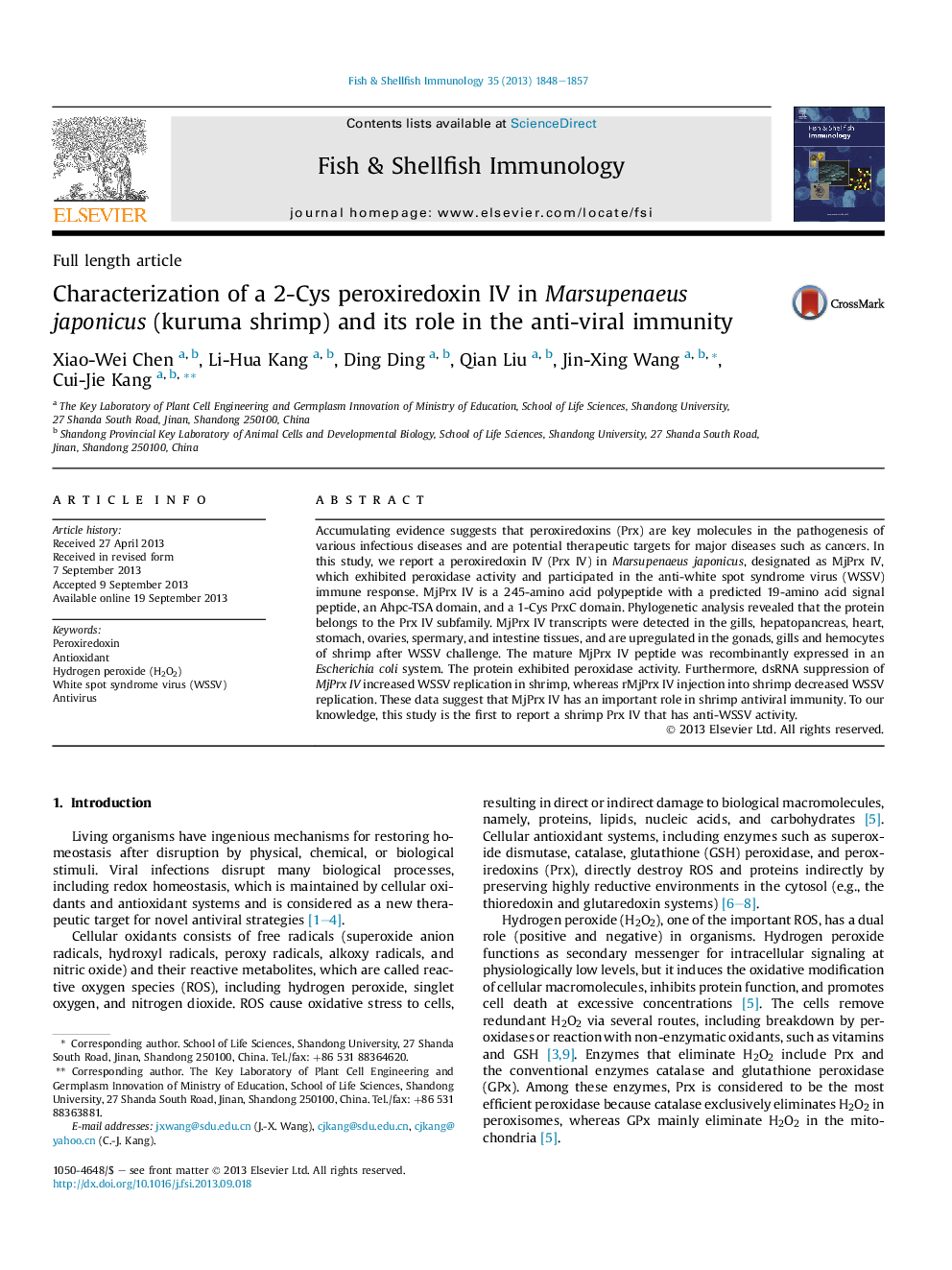| Article ID | Journal | Published Year | Pages | File Type |
|---|---|---|---|---|
| 2431540 | Fish & Shellfish Immunology | 2013 | 10 Pages |
•A peroxiredoxin IV (MjPrx IV) gene was cloned from shrimp Marsupenaeus japonicus.•MjPrx IV was expressed at high levels in various tissues of shrimp.•The rMjPrx IV has peroxidase activity.•MjPrx IV has an important role in shrimp antiviral immunity.
Accumulating evidence suggests that peroxiredoxins (Prx) are key molecules in the pathogenesis of various infectious diseases and are potential therapeutic targets for major diseases such as cancers. In this study, we report a peroxiredoxin IV (Prx IV) in Marsupenaeus japonicus, designated as MjPrx IV, which exhibited peroxidase activity and participated in the anti-white spot syndrome virus (WSSV) immune response. MjPrx IV is a 245-amino acid polypeptide with a predicted 19-amino acid signal peptide, an Ahpc-TSA domain, and a 1-Cys PrxC domain. Phylogenetic analysis revealed that the protein belongs to the Prx IV subfamily. MjPrx IV transcripts were detected in the gills, hepatopancreas, heart, stomach, ovaries, spermary, and intestine tissues, and are upregulated in the gonads, gills and hemocytes of shrimp after WSSV challenge. The mature MjPrx IV peptide was recombinantly expressed in an Escherichia coli system. The protein exhibited peroxidase activity. Furthermore, dsRNA suppression of MjPrx IV increased WSSV replication in shrimp, whereas rMjPrx IV injection into shrimp decreased WSSV replication. These data suggest that MjPrx IV has an important role in shrimp antiviral immunity. To our knowledge, this study is the first to report a shrimp Prx IV that has anti-WSSV activity.
